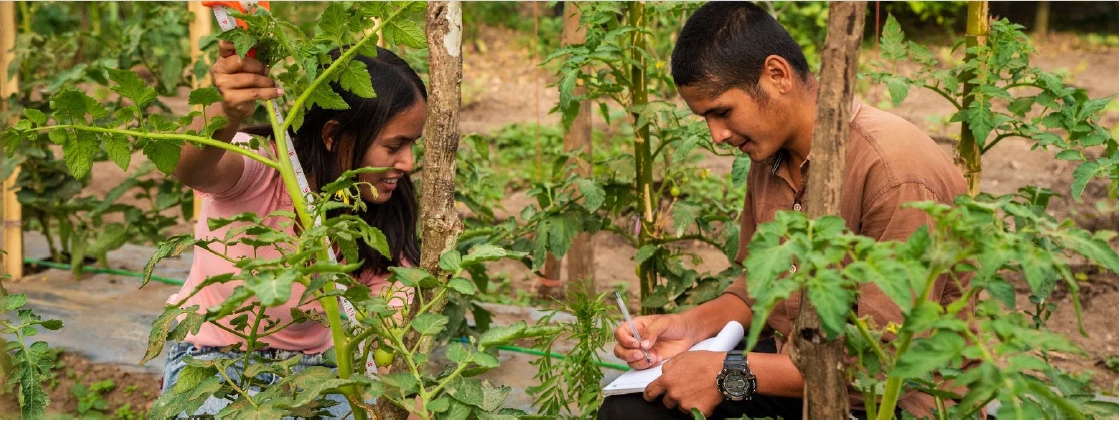Call for Applications - Summer School for Agri-Intermediaries 3-7 June 2024
 10 Apr, 2024
10 Apr, 2024
About GRAPE
GRAPE aims to support sustainable agricultural ecosystems in the provinces of Sudurpashchim and Karnali. Farmers, cooperatives, and small businesses will be enabled to build economically viable and climate-resilient value chains at the local level. The project works in 19 municipalities of Karnali and Sudurpashchim Provinces in the west of Nepal. It is being implemented under the guidance of the Ministry of Land Management, Cooperatives, and Poverty Alleviation. The action is jointly financed by the European Union (EU), the Ministry of Foreign Affairs of Finland, and the German Federal Ministry for Economic Cooperation and Development (BMZ).
Background
Nepal is a country highly vulnerable to climate change impacts. With a predominantly agrarian economy and a large population dependent on agriculture for their livelihoods, the country is facing multiple challenges in sustaining agriculture, managing water resources, and mitigating the impacts of climate change. In addition, the country is prone to natural disasters, including floods, landslides, and earthquakes, which significantly impact people's lives and livelihoods. In this context, there is a
need to build the capacity of the experts and potential change-makers especially those engaged in the agricultural sector to promote climate resilience agriculture, sustainable agriculture, and disaster management.
Objectives of the Summer School
The Field of Action 4- Scaling up, of the GRAPE project focuses on sharing of knowledge and transferring proven CRA practices and approaches practiced via the project to relevant stakeholders beyond the project location. The objective of the Summer School is to transfer knowledge and skills on proven Climate Resilient Agriculture practices and approaches to agri-intermediaries, mainly NGOs working in the agriculture sector.
Program structure (Tentative)
The summer school is a 5-day program that offers sessions on specific topics in an interactive format consisting of lectures and practical sessions. The sessions will be facilitated by GRAPE partners who have hands-on experience in practicing CRA approaches and practices.
Themes
Day 1-Transfer In Basic understanding of climate change and CRA GESI and Climate change GoN Insurance Provisions- crop and livestock Climate Resilient Land preparation No-tillage, reduced tillage, and zero tillage Climate Resilient Soil and nutrient management - SSNM Concept - Preparation of compost - Soil test and analysis
Day 2-Crop Management -Crop hygiene; Intercropping/ Mixed cropping - Seed exchange scope -Standardization of Tunnel Farming -SALT
Day 3-Water management; Water conservation Storage practices and use efficiency Grey pond, solar irrigation, spring shed management
Day 4-Disease and Pest Management -Usage of insect traps and lures - Seed treatment -Use of biological control- biopesticides, beneficial insects and micro-organisms
Day 5-Climate Resilient Livestock Management - Housing Management - Fodder and Forage Nursery - Disease control Management and Biosecurity - Farm waste management
Scholarship
The scholarship will cover the full participation fee of the summer school, travel to the training location in Dhangadhi from within Nepal, and full-board accommodation for up to 6 nights (depending on the travel duration). The participants are expected to be at the place of training from the evening of 2nd June to 7 June 2024.
Application process
Interested individuals can apply by submitting a current CV and a motivation letter (2 pages max) in English. A Letter of Recommendation from the employer is required (in English). The letter of motivation should highlight how the training content will be applied in future work and how the knowledge of the training content will be multiplied within the applicant’s organization and projects. Participants are expected to create action plans for putting into practice the knowledge gained from the summer school and showcase their implementation through a Facebook post.
The application documents should be sent as scanned copies to grape@giz.de no later than 3 May 2024.
Eligibility Criteria
Interested individuals must work for NGOs working in the agricultural sector registered in Nepal. The working area of interested individuals and their organizations must be in the field of agricultural development. Working knowledge of English is mandatory. Young professionals, women, and people with disabilities are highly encouraged to apply. It is intended to have an equal share of women and men attending the training. A maximum of 1 individual per NGO can apply.
For inquiries, please contact grape@giz.de




